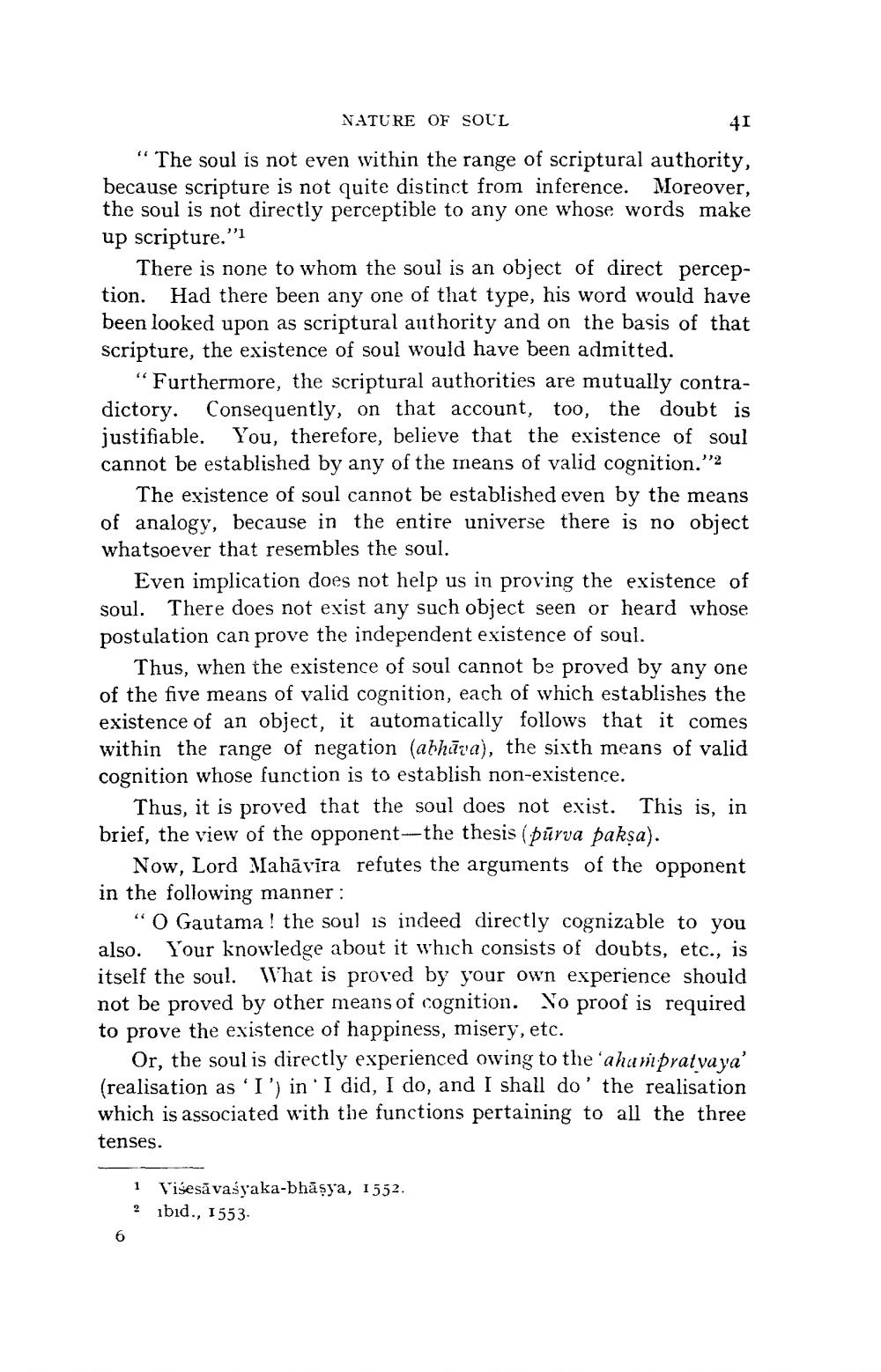________________
NATURE OF SOUL
41
"The soul is not even within the range of scriptural authority, because scripture is not quite distinct from inference. Moreover, the soul is not directly perceptible to any one whose words make up scripture."
There is none to whom the soul is an object of direct perception. Had there been any one of that type, his word would have been looked upon as scriptural authority and on the basis of that scripture, the existence of soul would have been admitted.
“Furthermore, the scriptural authorities are mutually contradictory. Consequently, on that account, too, the doubt is justifiable, You, therefore, believe that the existence of soul cannot be established by any of the means of valid cognition.”'2
The existence of soul cannot be established even by the means of analogy, because in the entire universe there is no object whatsoever that resembles the soul.
Even implication does not help us in proving the existence of soul. There does not exist any such object seen or heard whose postulation can prove the independent existence of soul.
Thus, when the existence of soul cannot be proved by any one of the five means of valid cognition, each of which establishes the existence of an object, it automatically follows that it comes within the range of negation (abhūta), the sixth means of valid cognition whose function is to establish non-existence.
Thus, it is proved that the soul does not exist. This is, in brief, the view of the opponent-the thesis (purva paksa).
Now, Lord Mahāvīra refutes the arguments of the opponent in the following manner:
"O Gautama! the soul is indeed directly cognizable to you also. Your knowledge about it which consists of doubts, etc., is itself the soul. What is proved by your own experience should not be proved by other means of cognition. No proof is required to prove the existence of happiness, misery, etc.
Or, the soul is directly experienced owing to the 'ahampratyaya' (realisation as I') in I did, I do, and I shall do' the realisation which is associated with the functions pertaining to all the three tenses.
1 Visesăvašyaka-bhāşya, 1552. ? ibid., 1553.




